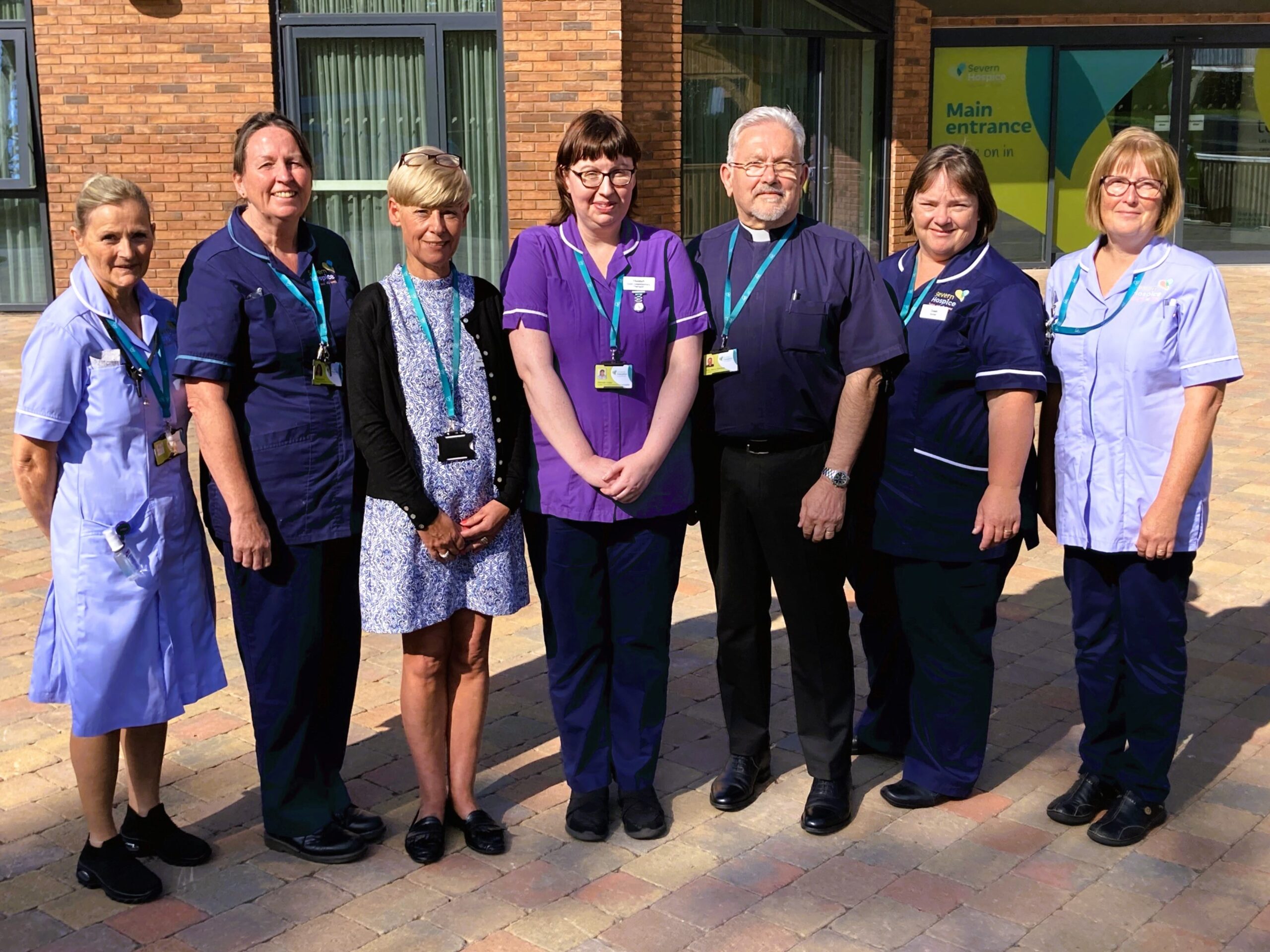
More patients who need specialist hospice care will be able to stay at home in future, thanks to changes we’re making to our services.
We care for people living with incurable illness from across Shropshire, Telford & Wrekin and Mid Wales of which four out of five patients are cared for at home.
And from today we are enhancing our community services so those patients have access to more hours of care and are able to receive more services.
Caring
Hospice Director of Care Becky Richardson said: “We’re caring for more patients at home, which we know is their preference, so we are developing our services further to match this expectation.”
The change will integrate two specialist nursing teams – Outreach and Hospice at Home – to become a single extended service. The new structure will enable those individual elements of care to be better planned and then delivered.
Outreach nurses work alongside GPs, district nurses and other healthcare providers to give hands-on nursing care to patients. This service will now be available seven days a week, with more hours of care in the day. The Hospice at Home team cares specifically for patients in the final stages of their illness and operates during the daytime and nighttime. Nurse Practitioners – nurses with additional skills and clinical authority – will now be available at weekends and on bank holidays.
Community
Meanwhile, our non-clinical services of social work and chaplaincy are also being changed so they too can better support patients and families at home, and help more of them.
The newly named ‘Patient and Family Support Service’ will provide better continuity of care to ensure patients and families are always getting the emotional and spiritual support they need when they need it.
A trial of extending the hospice’s complementary therapy services beyond its wards has been so successful, this will continue too.
In October, we announced that we were creating a ‘virtual ward’ – which meant patients could stay in their home and still receive the equivalent of ward-based care, with hospice consultants overseeing daily care.
Becky added: “We say that our care goes beyond wards and our long-term strategy is to have a model of community care that makes homecare for palliative patents a real possibility.
“We will always need wards for our most poorly patients with the most complicated symptoms but being able to offer so much enhanced care in the community will really help so many more people,” added Becky.













